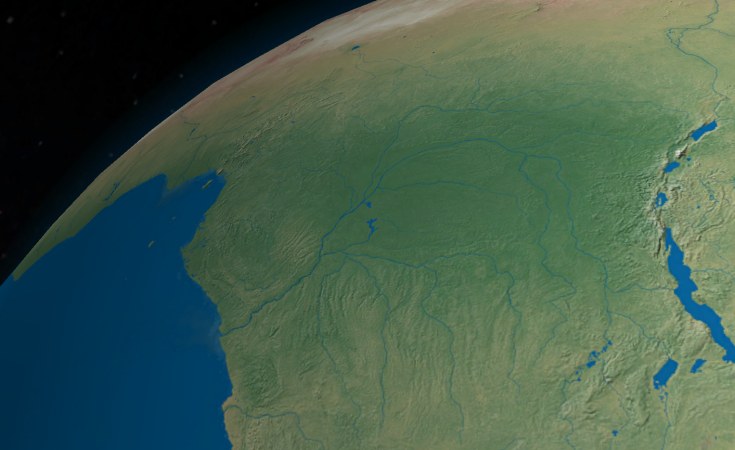Nature-based solutions can protect African nations' shared natural endowment and meet the needs of their people.
Africa's principal climate change negotiators have long understood the important contribution of 'nature-based solutions' (NBS) in delivering land (and sea) based options as part of the goals of the Paris Agreement. Limiting temperature rises to only 1.5°C by 2050 will demand finding innovative ways to protect Africa's vast natural endowment that also meets the equally acute needs of its people. Nature-based solutions may do both.
Decision-makers on the continent and across the world need to understand that 'business as usual' cannot be an option given the potential for loss of life, conflict and chaos.
The urgency for Africa cannot be overstated. At a Chatham House conference in Libreville, the Gabonese minister for the environment highlighted that if global warming surges by 2.5° or 3°C the impact would be at least 6°C for Africa. Decision-makers on the continent and across the world need to understand that 'business as usual' cannot be an option given the potential for loss of life, conflict and chaos.
Adaption, mitigation, or both?
Although adaptation to climate change has hitherto tended to be the continent's main concern, there has also been growing recognition of the ways that Africa's natural environments, from forests and grasslands, to peatlands and coastal and marine ecosystems, all also mitigate its impacts by sequestering carbon. The Congo Basin alone is said to store upwards of 4 per cent of global emissions annually.
Arguing that African states should slow the development of their economies in response to a crisis born of the already-industrialized world does not find a responsive audience in a continent hungry for jobs and opportunity.
These environments are under increasing pressure. Deforestation is a sad reality, caused mostly by unsustainable and extensive agricultural practices focused on cash crops for export more than food production to feed local populations. And arguing that African states and peoples should slow the development of their economies and infrastructure in response to a crisis born of the already-industrialized world does not find a responsive audience in a continent hungry for jobs and opportunity.
Nature-based solutions offer an answer to this conundrum. There is growing evidence that natural habitats both help avoid losses from climate change-related disasters and can drive economic growth. There is thus potential for NBS to tackle both adaptation and mitigation challenges at relatively low cost.
NBS - the rocky road from commitment to policy
It was logical therefore for Africa and like-minded countries to work to integrate NBS more strongly into the climate change agenda at COP26. The final Glasgow Climate Pact duly emphasized the importance of protecting ecosystems. The Global Forest Finance Pledge signed in the margins was also significant. African focus, with COP 27 in Egypt soon to take place, is now on domestic implementation and delivery of these pledges. The new African Union Climate Change and Resilient Development strategy (2022-2032) sets out many of the challenges and opportunities.
Choosing the right development pathway is tough, requiring political will and inclusive governance. Besides the challenge of securing alternative national revenue if a country moves away from fossil-intensive fuels - particularly acute for Africa's resource-producing states - there is a dizzying array of policy decisions to be taken. African governments need to choose the most appropriate renewable energy sources, secure alternative livelihoods and continue to meet basic needs of the most vulnerable in the context of radical restructuring.
Towards African solutions
There can be no one-size-fits-all answer to these questions - it is sadly still necessary to underline the enormous geographic, cultural and political diversity of the continent - but African experts have begun to draw together some emerging common themes from work already underway.
Maintaining the 'status quo' in agricultural practices is no longer an option. Emphasis on sustainable agriculture is urgently needed andthat includes the elaboration of a 'new deal' between nature and people.
Conservation also needs to be reframed as an economic opportunity, particularly in the elaboration and development of ecosystem services that deliver the true value of Africa's forests, and that involve, value and reward local communities, respecting their rights and livelihoods.
Maintaining the 'status quo' in agricultural practices is no longer an option. Emphasis on sustainable agriculture is urgently needed.
Regional cooperation is likewise key, including on the management of forest, wildlife and water resources - Africa's ecosystems do not respect arbitrary political boundaries, and accomplishing the dual feat of protecting cross-border systems at the same time as realizing their economic potential will demand effective collaboration, as well as training, education and communication at all levels.
The imperative of finance
A further imperative will be securing sufficient developed country financing - whether that be to secure value for net sequestration and effective forest management or for models of context-appropriate 'smarter' sustainable rural conservation and ecosystem resilience.
Abou Bamba, Chairman, Organizing Committee of the 15th Conference of the Parties (COP15) to the United Nations Convention to Combat Desertification (UNCCD)
Bob Dewa, Associate Fellow, Africa Programme


